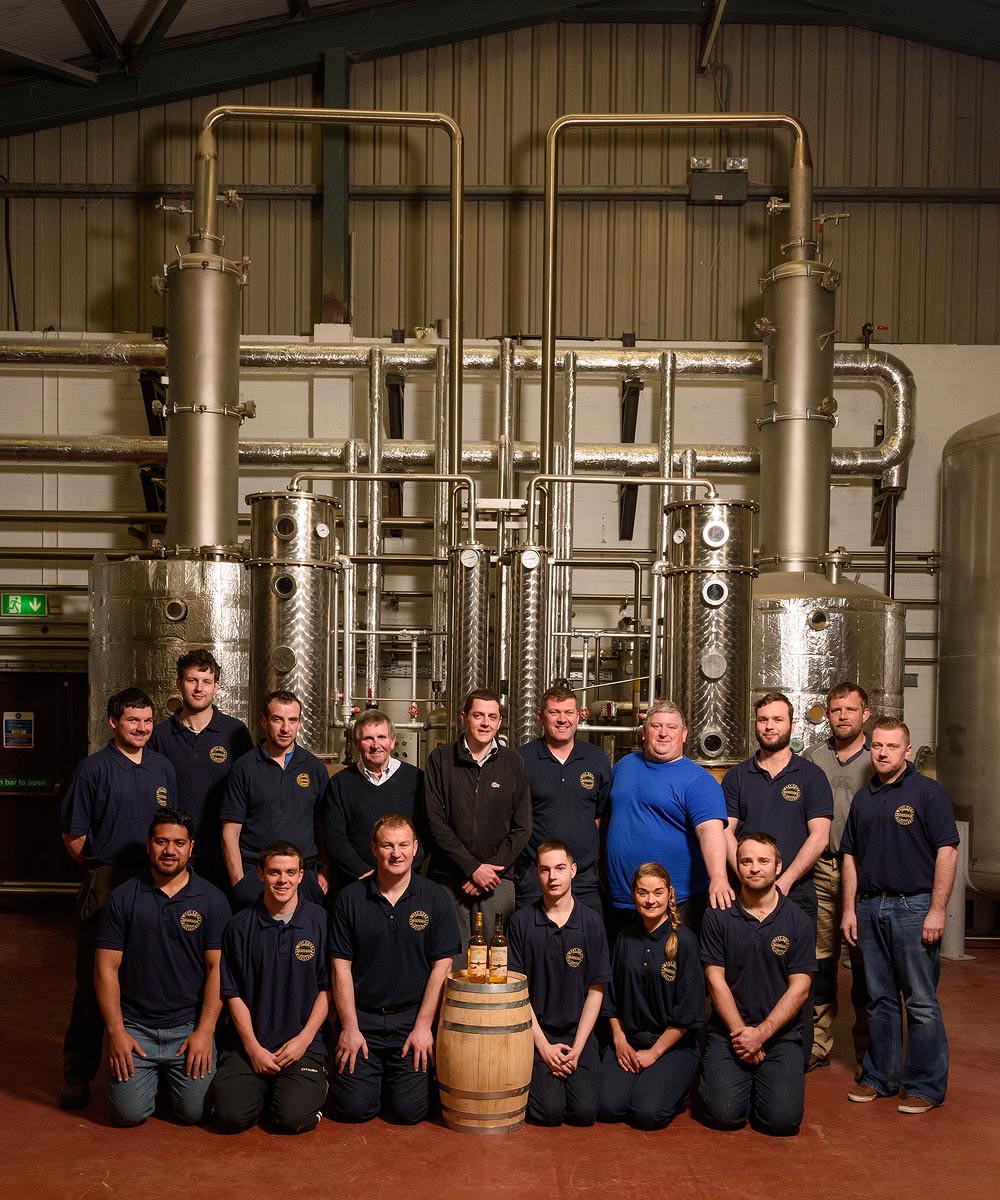More on West Cork Distillers

I had a lovely conversation with John O'Connell from West Cork Distillers this last week—the new Irish whiskey label that's taken K&L by storm suddenly. He rang my cell phone at about 9 AM on Thursday morning and we discussed the latest happenings at Ireland's soon-to-be-a-superstar distillery. John also sent me a few photos to use on the blog, and answered some questions I had about pricing and availability. There's something about the Irish work ethic that you just have to respect. John reiterated some of the main philosophies concerning whisky that I've heard from other Irish friends in the industry; namely that whisky should be tasty, affordable, and not fussy. "We just need to make enough profit to cover our main expenses. We're not looking for a whole lot beyond that," he said to me calmly. He also said that West Cork operates around the clock, 24/7, and that he—as one of the owners—runs one of the overnight weekend shifts himself. That's called setting an example.
Here are a few more quick specs that John sent me:
There are four stills in total at West Cork and they are in the process of developing another set. The two low wine stills are Setterstrom of Sweden stills. The very high lye to pot height ration (nearly 4:1) means that West Cork can make a very clean and high alcohol low wine ( about 55% ABV which is INSANE). The spirit stills are copper from Holstein in Germany. They have both jacket and coils heating systems. The alcohol content of the first spirit comes off at circa 70% but West Cork pulls at around 63%.

West Cork only distills with grains indigenously grown in Ireland; so those would be barley and wheat. They distill their grain whisky on a pot still as well and absolutely no corn is used in that mashbill, just the two aforementioned crops. West Cork has been distilling since 2004, but in 2009 they ramped up production significantly. They malt some of their own barley on site (using green malt, which John thinks makes a big difference in flavor), and they do not use municipal water for their production; only natural spring water and water taken directly from the Ilen River.
We still have plenty of the standard Classic Blend in stock right now, and we'll have more of the ten year old later this week. Both are just ridiculous values considering the quality and scale of West Cork's production, and especially when you compare what they're charging to other small and independent distilleries around the world. Again, the more I dig into the story of West Cork Distillers, the more magical it becomes. Another thing John said that impressed me was that West Cork didn't take any outside investment money because they didn't want to be beholden to capitalistic interests. West Cork really does seem like a bunch of down-home, hardworking Irish boys pulling themselves up by their bootstraps and making something delicious and affordable. Whether that matters to you or not is subjective, but I find it incredibly endearing.
-David Driscoll
